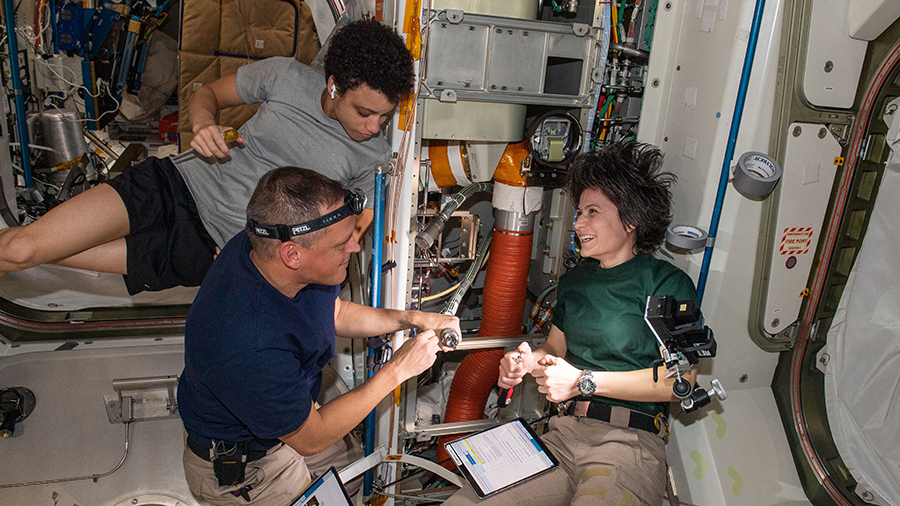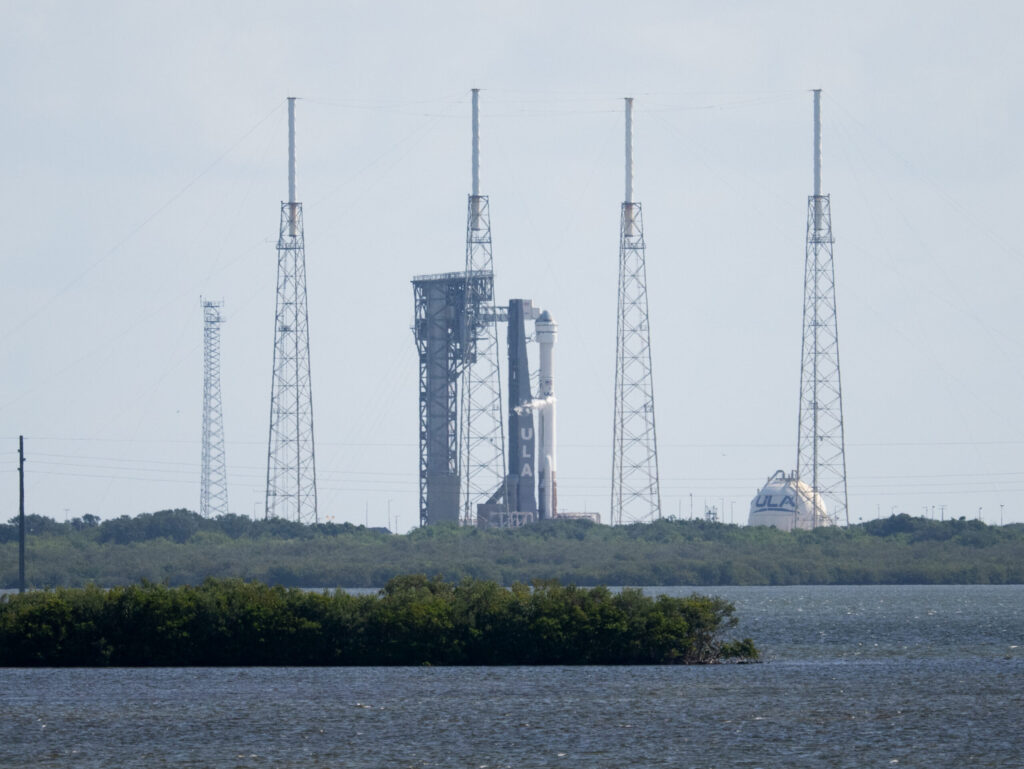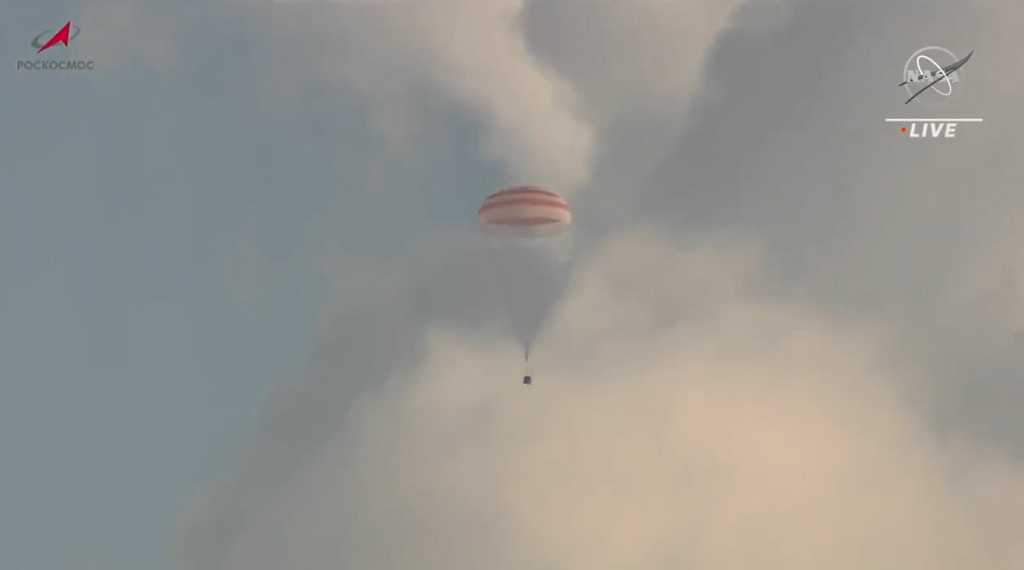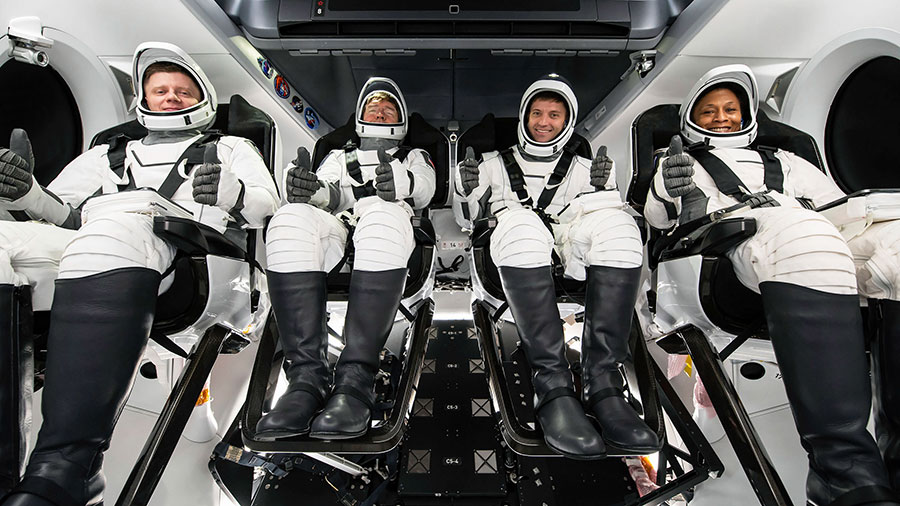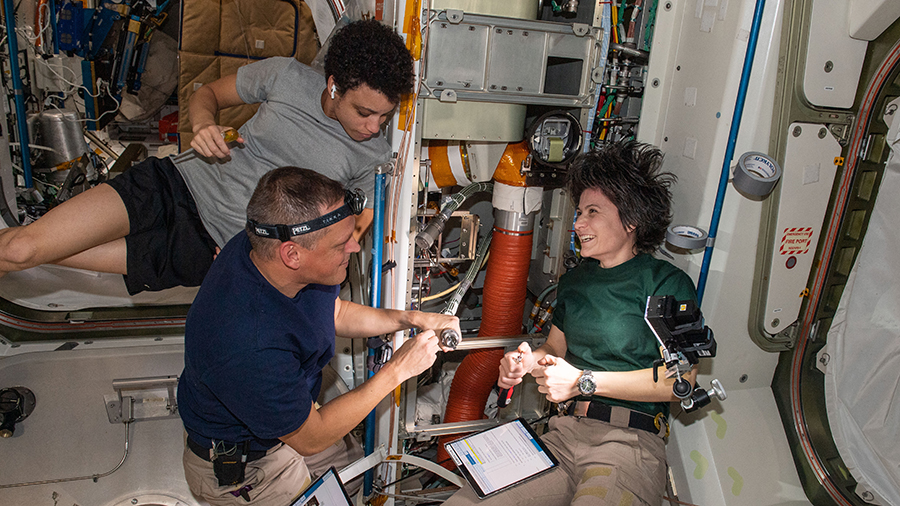
Preparations for a cargo mission this week and a spacewalk next week are keeping the Expedition 67 crew busy aboard the International Space Station. The seven orbital residents are also staying busy with their ongoing research into human biology, space physics, and robotics.
The SpaceX Dragon cargo craft attached to the Falcon 9 rocket is due to roll out to the launch pad soon at the Kennedy Space Center in Florida. It is scheduled to launch at 8:44 p.m. EDT on Thursday carrying 5,800 pounds of science experiments and crew supplies to replenish the orbiting lab. Dragon will orbit Earth for a day-and-a-half before docking to the Harmony module’s forward port at 11:20 a.m. on Saturday.
NASA astronaut Jessica Watkins spent an hour-and-a-half Monday morning studying Dragon’s approach and rendezvous maneuvers. She will be on duty Saturday morning, along with NASA astronaut Bob Hines, monitoring Dragon’s automated docking to Harmony. NASA TV, on the agency’s app and website, will begin live coverage at 10 a.m. on Saturday of Dragon’s arrival at the station for a monthlong stay.
Watkins also took turns with Hines and fellow NASA astronaut Kjell Lindgren participating in a fitness test on an exercise cycle located in the U.S. Destiny laboratory module. The trio strapped sensors to themselves and pedaled for 60 minutes for the VO2Max exercise study that monitors an astronaut’s aerobic capacity.
Watkins began her day activating the Astrobee robotic free-flyers to test their ability to autonomously navigate inside the Kibo laboratory module. Hines swapped fiber optic cable samples inside the Microgravity Science Glovebox for the Intelligent Glass Optics space manufacturing study. Lindgren finalized his day testing the new Butterfly IQ Ultrasound device for its mobile and remote medical capabilities.
A Roscosmos cosmonaut and an ESA (European Space Agency) astronaut are gearing up for the year’s sixth spacewalk planned for July 21. Commander Oleg Artemyev and Flight Engineer Samantha Cristoforetti spent all day Monday activating and inspecting a pair of Russian Orlan spacesuits. The duo will work outside in the vacuum of space for approximately seven hours configuring the European robotic arm (ERA) for operations on the station’s Russian segment.
Artemyev started his day with Flight Engineer Denis Matveev for an hourlong assessment of their cardiovascular system. Matveev then replaced smoke detectors and checked sensors inside the Zvezda service module. Flight Engineer Sergey Korsakov worked on water transfers inside the ISS Progress 80 cargo craft then prepared the ERA for next week’s spacewalk.

